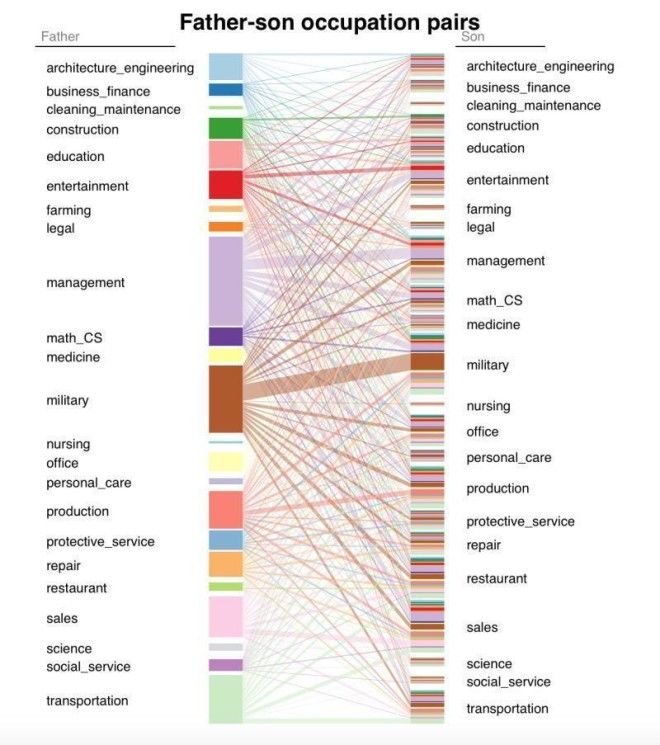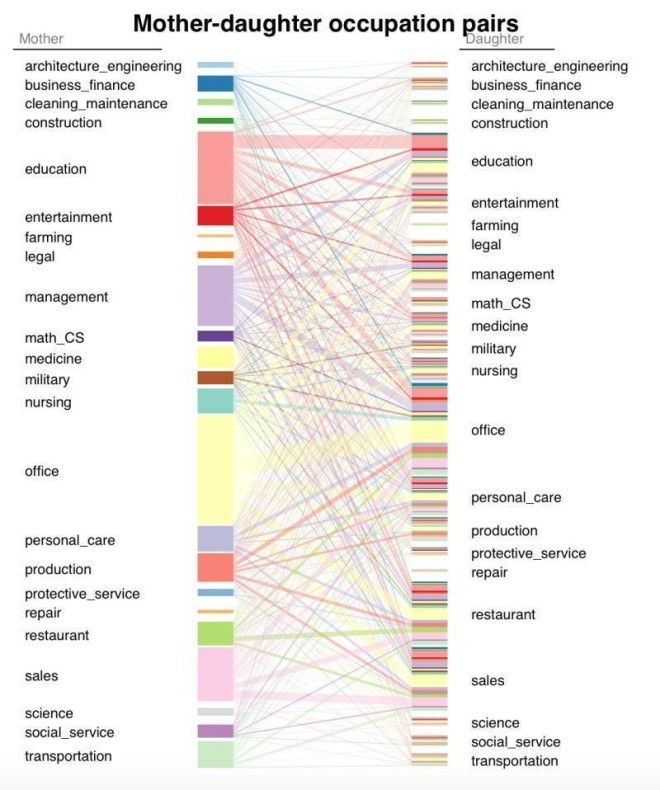In a recent blog post, some of the data scientists at Facebook Research have crunched the information they have on whether children follow in their parent’s footsteps when it comes to their career choice.
Ismail Onur Filiz and Lada Adamic gathered infomation from a 5.6 million-strong sample of parents and their children. Along with this, they created interactive visualizations that map out the relation of father-son occupations and that of mother-daughter occupations. There was also evidence for substantial cross-gender occupation “inheritance” (i.e. mother-son and father-daughter occupations).
For example, you are five times more likely to join the military if your father was, or is, in the military. As a male, if your father was in the farming, fishing, or forestry sector, you are 7.6 times more likely to go into that profession. Daughters with mothers in nursing are over 3.75 times more likely to become nurses.

This might sound like your parents really do set your path in life, however these numbers can be slightly misleading. For example, take the statistic on father-son pairs working in farming, fishing, or forestry: It sounds like a heavy likelihood here, but in reality only 3 percent of sons will actually follow their fathers into this profession.
As for the mother-daughter pairs in nursing, only 8.5 percent of daughters will actually follow suit.
There are a few other things worth considering when looking at the data. First of all, not everybody has Facebook. Even more so, not everyone has their parents, offspring, and occupation listed. Additionally, only English-speaking profiles were used in the dataset. Therefore, the data isn’t necessarily totally representative. Nonetheless, it does provide some interesting reading. Head over to the Research at Facebook blog for more interactive visualizations and insight into the data.


